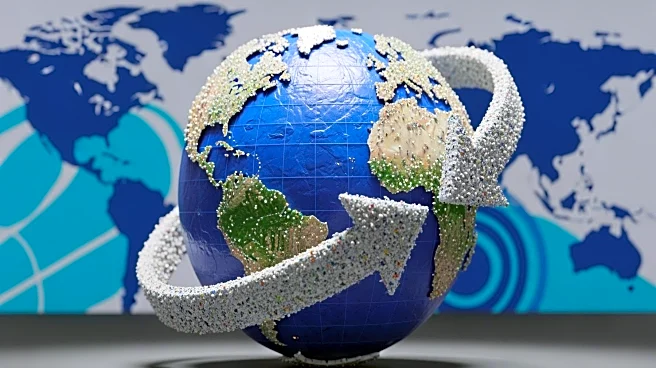What's Happening?
ICIS and CPCIF have released a study examining the global effects of the European Union's circularity regulation on the demand for recycled plastics. The study, published on October 22, 2025, highlights the significant increase in demand for recycled polyethylene
(rPE), polypropylene (rPP), and polyethylene terephthalate (rPET) due to the EU's Packaging and Packaging Waste Regulation (PPWR). By 2030, EU producers are expected to require 5.4 million tonnes of these materials annually, a figure projected to more than double by 2040. The study also emphasizes the critical role of chemical recycling in meeting these demands, especially for applications requiring high safety and performance standards. The interconnected nature of global trade means that EU regulations will influence supply chains worldwide, impacting sourcing strategies and increasing demand for certified recycled materials.
Why It's Important?
The study underscores the EU's circularity regulation as a driving force in the global market, influencing industrial strategies and supply chains. This regulation is expected to boost innovation in recycling technologies and processes, particularly chemical recycling, which is essential for meeting the high demand for recycled materials. The global spillover effects of these regulations will require exporters to comply with EU standards, potentially reshaping global trade dynamics. This could lead to increased costs for companies that need to adapt their supply chains to meet these new requirements, but it also presents opportunities for businesses that can innovate and lead in the circular economy.
What's Next?
As the demand for recycled plastics grows, companies will need to invest in new technologies and processes to meet EU standards. This may involve increased collaboration between industries and governments to develop and implement effective recycling strategies. Additionally, countries like China, which play a significant role in the global plastics supply chain, will need to align their standards with international regulations to remain competitive. The study suggests that these developments could accelerate the global transition to a circular economy, with significant implications for industries such as packaging, automotive, and textiles.
















